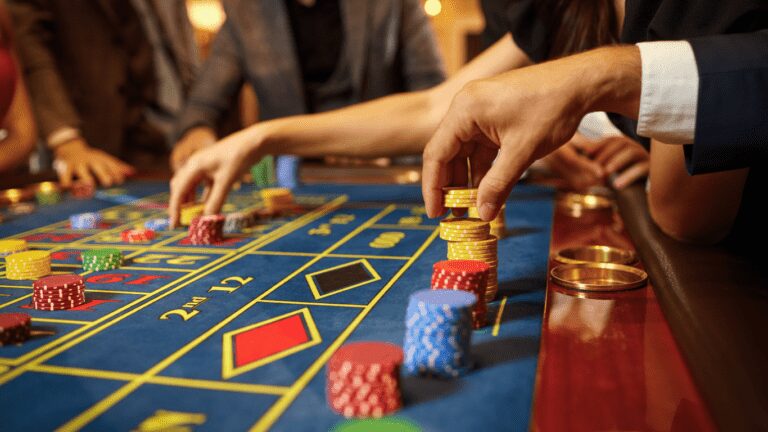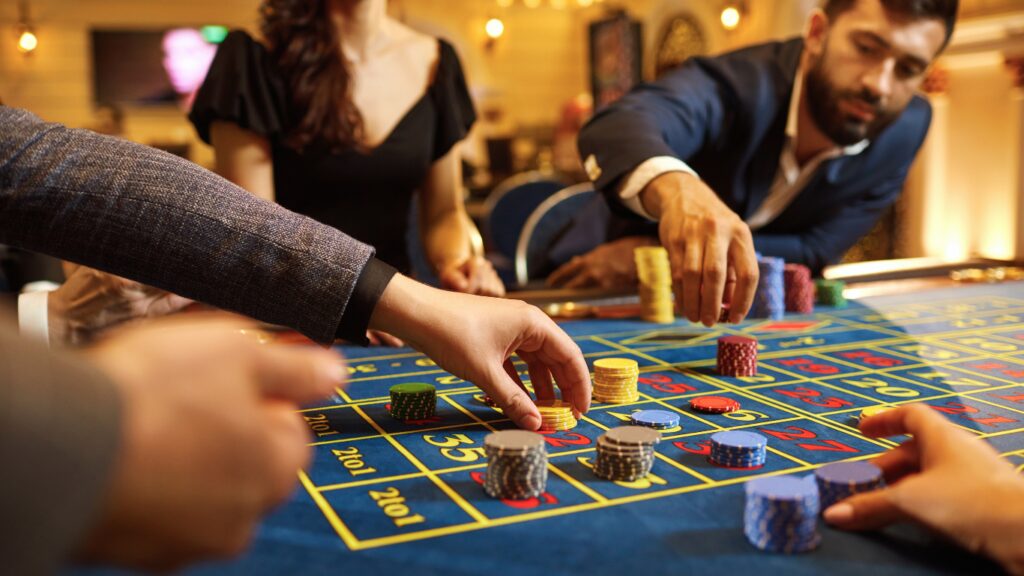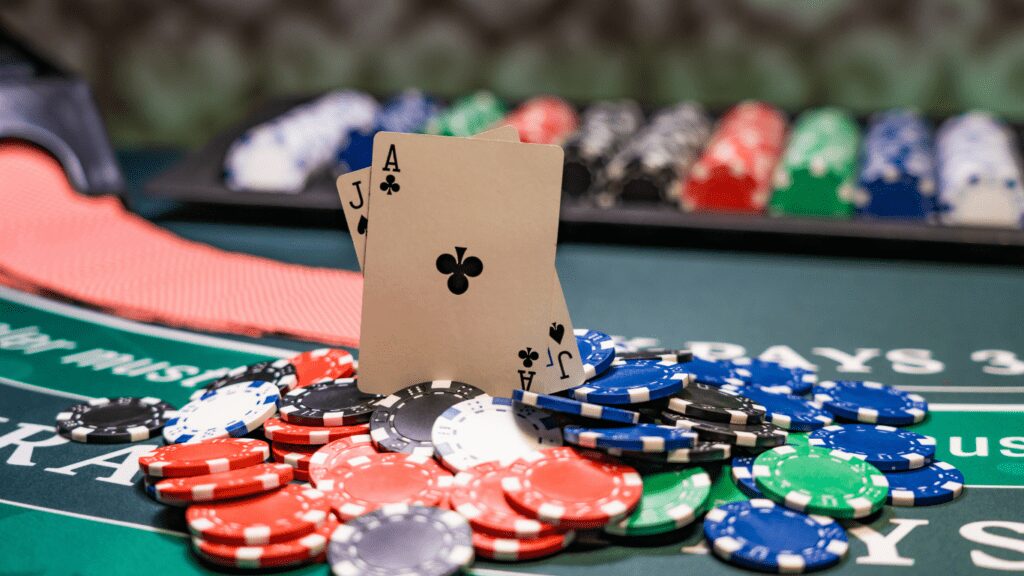Understanding the Big Bet Mentality
High-stakes gamblers share distinct psychological traits that drive their decision-making. Risk tolerance often ranks highest, as these individuals accept uncertainty in the pursuit of potentially massive rewards. Their appetite for risk sets them apart from the average person, enabling them to enter situations many would avoid.
Confidence plays a crucial role in fueling bold wagers. Successful gamblers rely on their belief in their abilities, whether these stem from:
- skill
- strategy
- intuition
This confidence drives their actions, even under unpredictable conditions, and reduces hesitation in making high-impact moves.
Dopamine release significantly influences the big-bet mentality. Studies show that risk-taking triggers brain activity associated with pleasure and reward. This chemical response reinforces the excitement of wagering large sums, potentially making high-stakes gambling an addictive thrill.
Social dynamics also impact decision-making in high-stakes gamblers. Some pursue bold bets to seek validation, achieve recognition, or establish status within competitive environments. These psychological rewards sometimes outweigh financial considerations, emphasizing the importance of ego and reputation in the big-bet mentality.
Resilience allows gamblers to withstand losses and continue pursuing high-stakes opportunities. Resilient individuals focus on long-term gains rather than fearing short-term setbacks, which supports their ability to stay committed to high-risk scenarios.
Psychological Traits of Bold Gamblers

Bold gamblers share unique psychological characteristics that drive their high-risk decisions and distinguish them from more cautious individuals. These traits influence their behavior under pressure and contribute to their capacity for bold, decisive action.
Risk-Taking Behavior
High-stakes gamblers exhibit a notable tolerance for risk. They’re often comfortable operating in environments with high uncertainty, embracing the possibility of significant losses for the chance at substantial gains. This behavior stems from a greater ability to process risk-reward scenarios without being paralyzed by fear of failure. For example, professional poker players assess probabilities and anticipate potential outcomes rather than avoiding action due to potential downsides.
The Role of Confidence and Optimism
- Confidence is foundational for bold gamblers.
- They trust their skills and decision-making in situations with little external assurance of success.
- Optimism strengthens this confidence, as they often expect positive outcomes even in unfavorable circumstances. For instance, skilled gamblers frequently rely on past successes to affirm their belief in future victories.
- These attitudes enable them to face repeated challenges with resilience.
Impact of Adrenaline and Thrill-Seeking
Adrenaline significantly fuels bold gambling behavior. The physiological rush from high-stakes situations intensifies focus and enhances excitement, creating a reinforcing cycle of thrill-seeking. Many gamblers are drawn to this sensation, equating the emotional high with personal satisfaction. For example, wagering large sums triggers dopamine release, making the experience enjoyable beyond financial implications.
Social and Cultural Influences
Social and cultural contexts shape decision-making behaviors in high-stakes gamblers. Exposure to specific societal norms, peer interactions, and early-life environments often impacts their willingness to take significant risks.
Gambling and Peer Pressure
Social pressure frequently influences high-risk gamblers. Groups that glorify bold bets or reward risky behavior create an environment where taking large gambles feels socially accepted or even necessary. In settings like exclusive poker games, players gain status by demonstrating their fearlessness. Peer encouragement amplifies confidence, pushing gamblers to embrace higher levels of risk to fit in or earn admiration. Conversely, negative reinforcement, such as mockery over conservative behavior, can further drive reckless gambling.
The Influence of Upbringing and Environment
An individual’s upbringing often establishes their baseline attitude toward risk. Those raised in competitive households or environments valuing achievement may develop the mindset to pursue high-stakes rewards, connecting success to daring behavior. Access to gambling at an early age or witnessing risk-taking figures within a family can normalize significant financial risks. Additionally, cultural values promoting ambition or glorifying wealth contribute to shaping bold gamblers, embedding high-stakes decisions into their worldview as markers of success or resilience.
The Science Behind High-Stakes Decisions
High-stakes decisions are deeply rooted in brain chemistry and psychological processes. Neuroscience and behavioral studies reveal how biological and emotional factors drive gamblers to risk significant sums.
The Role of Dopamine in Gambling
Dopamine heavily influences the appeal of high-risk bets. This neurotransmitter, associated with pleasure and reward, surges during gambling, especially when the outcome is uncertain. The anticipation of winning activates the brain’s reward system, regardless of the actual result. For bold gamblers, this creates a cycle where the thrill of the gamble becomes as rewarding as monetary success. Studies reveal that individuals prone to high-stakes gambling often exhibit heightened dopamine responses, which can fuel addictive tendencies.
Cognitive Biases and Decision-Making
Cognitive biases impact the judgment of bold gamblers, shaping how they perceive risks and rewards. Optimism bias leads them to overestimate their likelihood of winning, while the illusion of control convinces them that their skills can dictate outcomes in chance-based situations. The sunk-cost fallacy also plays a role, as many continue betting to justify prior losses. These biases create a distorted view of reality, reinforcing high-risk behaviors rather than fostering rational decision-making.
Emotional Regulation During Big Bets
Managing emotions is critical during high-stakes betting. Successful gamblers often use emotional regulation strategies to stay composed under pressure. This detachment helps them avoid impulsive decisions driven by fear or euphoria. Cortisol levels, which rise during stress, can hinder clear thinking, but those with practiced emotional control minimize its effects through focus and discipline. High-stakes gamblers who fail to regulate emotions often experience erratic behavior, amplifying losses rather than ensuring long-term success.
















































































































































































































































































































































































































































































































































































































































































































































































































































































































































































































































































 As co-founder of CasinoMastermindx. Cecilla Pricetalker leads the vision and strategy behind the platform’s tech-focused content. With a deep understanding of casino innovation, software engineering, and iGaming trends, she ensures every piece reflects accuracy, innovation, and integrity. Cecilla’s leadership and technical insight make CasinoMastermindx.com a trusted source for forward-thinking gaming intelligence.
As co-founder of CasinoMastermindx. Cecilla Pricetalker leads the vision and strategy behind the platform’s tech-focused content. With a deep understanding of casino innovation, software engineering, and iGaming trends, she ensures every piece reflects accuracy, innovation, and integrity. Cecilla’s leadership and technical insight make CasinoMastermindx.com a trusted source for forward-thinking gaming intelligence.
